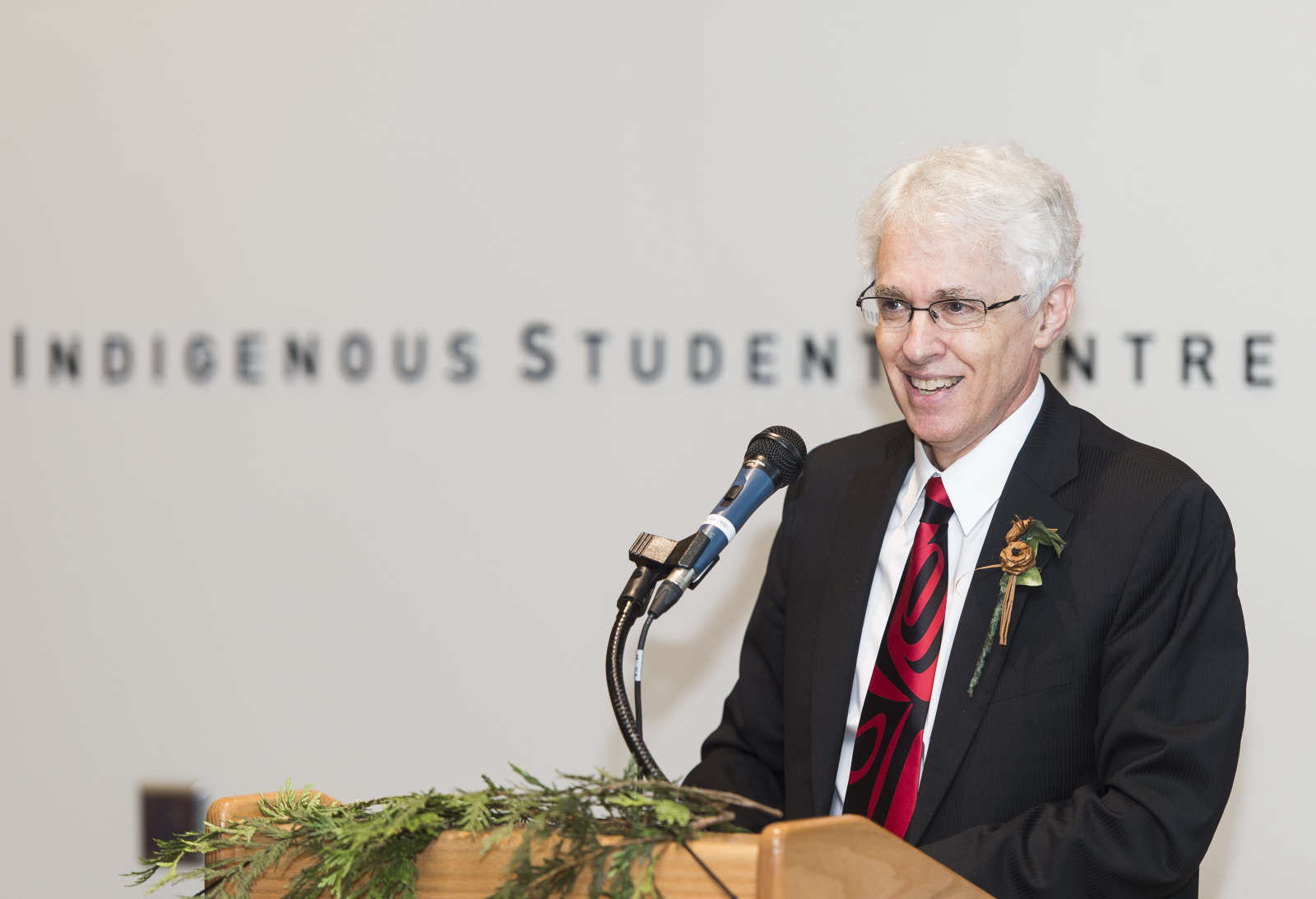In December 2018, Fiona Robin, chair of the SFU Board of Governors, announced that Andrew Petter will be stepping down from his role as the institution’s president and vice-chancellor at the end of August 2020. Recently, The Peak had the opportunity to sit down with president Petter and discuss his soon-to-be 10-year tenure at SFU, what he plans on doing for the remainder of his term, and his decision to resign.
Petter started his term at SFU on September 1, 2010, and prior to becoming SFU’s ninth president, he was a NDP cabinet minister. Since then, he has helped champion multiple initiatives on campus such as creating the co-curricular record that enables students to record and be recognized for their volunteer activities, maintaining SFU’s status as one of Canada’s leading comprehensive universities in the last 10 years, establishing the Aboriginal Reconciliation Council to facilitate reconciliation between Indigenous and non-Indigenous individuals on campus, as well as increasing co-op and research opportunities for SFU students.
“I hope [all of that] has helped to enrich the student experience because I’m a big believer — as important as it is for students to learn in the classroom or in the lab — but also for them to gain understanding outside the classroom,” said Petter.
When asked why he won’t be renewing his term, Petter said: “One of the really great things about universities is that we get new students every year and that’s one form of renewal. But we need renewal in terms of leadership as well: new ideas, people who can come in with new perspectives [and] add values.”
“I feel I had that opportunity and I helped along with others to move the university forward. After 10 years I think it’s a good time to turn over the reins to someone else to help the university take that next big leap forward,” he continued.
At the moment, a presidential term at SFU lasts for five years and the average length of a university president’s tenure in Canada right now is around six years, according to President Petter.
In addition, in January 2019, Petter was named to the Order of Canada — along with 102 other inductees across the nation — for his significant contributions to humanity and society at the municipal and national level.
“What makes me feel really good about the Order of Canada was when I read the top line reason for giving me [the award] and it was for the work that I’ve done to help connect the university with the community,” shared Petter.
“I take some comfort from the fact that the award I got is not an award for individual achievement but rather an award for the collective effort that we as the university have shown and an affirmation that that effort has been appreciated not only here but across the country.”
“I would say with some pride that SFU is very much seen as a leader now nationally and even internationally for the efforts we’ve made to show how you can more fully engage communities and by doing so benefit the university,” he further added.
When asked what he will be doing for the remainder of his term, Petter shared: “We have started work on the first phase of a major residence expansion that will add over 400 new units for single undergraduate students. I’m hoping we can break ground on phase two as well, make it over 800. There is [also] work to expand the Indigenous Student Centre.”
In addition, the president is hopeful that the university will deliver the commitment to develop a First Peoples’ house on the Burnaby campus.
“That’s been a long time goal to have a place that will complement the Indigenous Student Centre by providing a cultural space where not only Indigenous people can gather but [other students] can gather and appreciate the value of Indigenous culture and knowledge on this campus,” he said.
He also mentioned that he would like to see significant headway for a rental housing facility in lot 21 in UniverCity that will be primarily reserved for graduate students and students with families.
In terms of initiating the search for the next SFU president, Angela Wilson, SFU’s senior director, media relations and public affairs, shared that the process will take approximately 12–15 months and it has already started since the beginning of January 2019.
“The Board of Governors has established the Presidential Search Committee (as per University Policy B 10.06), and has charged that committee with conducting the search,” said Wilson in an email interview with The Peak.
The search committee will be consulting SFU students, faculty, and staff about the presidential position description, such as what qualities, leadership and personal qualities they would like the ideal candidate to possess and the opportunities to have input will be broadly advertised, she further added.
When asked what Petter will be doing once his term finishes, he said “I will have a bit of an administrative leave which will allow me to think through a little bit of what the future may hold for me [ . . . ] While I will step down from my role as President, I will not be stepping down in my capacity as a professor of public policy and I may well end up doing some teaching.”
“I’m certainly not going to disconnect myself from SFU. I love this university [ . . . ] I applied to be the president of this university because I thought this university was different; it had an energy, a culture, a vibrancy that was different than traditional universities. I believe in this university [ . . . ] my heart will still be with SFU,” he concluded.
With files from SFU News and The Georgia Straight


[…] the construction labyrinth that is Burnaby campus. Having slated Petter to remain president until August 2020, the university is now at a […]